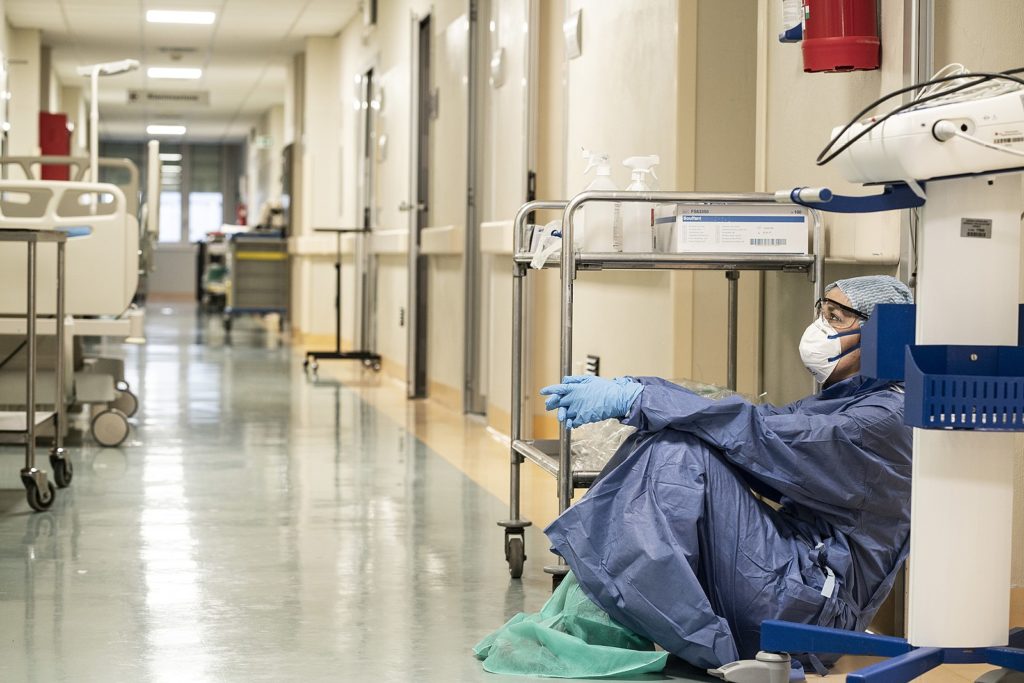Margit Burmeister and Ari Allyn-Feuer both contributed to this report:
If you’ve suffered from COVID-19 and were hoping to get an immunity passport proving you can’t get the virus or spread it ever again, it’s been a bad week for you. This week brought strong clinical evidence that it’s possible for the same person to get COVID-19 twice. Reinfection appears possible, as physicians in two US states have taken to the popular press to tell us.
This evidence of reinfection is disheartening to many, but it’s also very important. It bears on how safe previous COVID-19 patients are, whether natural herd immunity is possible, and even how well vaccines will work. This news is novel, important, and worrisome, but it suggests future research and leaves a lot of important questions without answers.
What the reinfection possibility means
The question of reinfection, whether prior COVID-19 patients can become infected with SARS-CoV-2 again, has been an explosive one since the beginning of the outbreak. Since the early days of the pandemic, folks have wondered if infection meant immunity. Some have even, dubiously, advocated for infecting as many people as possible to get herd immunity for the whole country.
That’s because if reinfection within a short period is impossible or very rare, then natural herd immunity is possible (although it would come at a high human cost). But if reinfection is relatively common, then this hope is illusory. Those “immunity passports” some have hoped for may be completely unworkable.
More importantly, the probability of reinfection will probably impact vaccine development. The strength and durability of the human immune system’s response to symptomatic disease could at least partially predict the effectiveness of an eventual vaccine.
How these reports are different from past reports
We’ve seen reports of reinfection before. But the medical community swiftly disputed and then discarded those reports because the criteria used to define them were not very strong. Take the reports of reinfection we saw in Korea. Those reports were based on positive tests following negative testing. In the end, they were the result of circulating nucleic acids without a second infection. These patients did not experience renewed symptoms and weren’t able to infect others.
These new case reports, if their details reach medical journals in the same shape they hit the news media, should lay this first question to rest. They’ll probably show that reinfection is at least possible. The doctors say their patients had clinical cases of COVID-19 which resolved completely and returned multiple negative consecutive tests, followed by a second symptomatic case of COVID-19 which tested positive.
One thing to watch for: if both infections’ genomes are sequenced and shown to come from different lineages. If that’s the case, it could make these cases a more definitive demonstration, and clarify some of these questions. This may or may not be possible for these cases, depending on whether samples were banked.
Implications from other viruses
Reinfection is rare for most viral diseases. That’s why people talked about “immunity passports” to begin with. Many assumed at the beginning of the pandemic that it wouldn’t be possible to get COVID-19 for a second time.
We might be able to take a lesson from Dengue fever, however, which is endemic in many tropical areas.
The first time a person is infected with Dengue fever, the case is usually mild. But there are 4 serotypes for Dengue, and while illness protects against the serotype one was infected with, one can be infected with one of the other 3 serotypes. A second infection with another serotype has a higher likelihood of being severe or fatal.
Why? We only found out recently that the antibodies from the first infection can’t neutralize against other serotypes. In fact, the antibodies can actually help the virus get into susceptible cells. This is a phenomenon known as antibody-dependent enhancement.
Because of this complication, scientists suspect a preventative vaccine could make matters worse for patients who have never had Dengue fever. A vaccine would prevent a mild first infection but make patients susceptible to a severe second infection. Therefore, the only approved Dengue fever vaccine is only given to those who already have been infected once, to prevent a second infection.
There’s no direct evidence that anything like this is the situation for COVID-19. But it’s an example of a possible implication of reinfection on future vaccines.
What we still don’t know
There’s still a lot we don’t know about reinfection and COVID-19. But some of what the doctors have said should catch the eyes of researchers. D. Clay Ackerly, one of the physicians involved in the reinfection reports, points to recent research showing that at least some recovering COVID-19 patients lose their seroconversion. Recent genetic confirmation also shows that some patients can become reinfected with common cold coronaviruses. Those findings bolster the case that this issue is deserving of widespread attention from researchers.
Although both asymptomatic carriers and symptomatically ill COVID-19 patients made antibodies against the virus, those patients lost antibodies relatively quickly. Within just 8 weeks, 40% of asymptomatic and 20% of symptomatic COVID-19 patients were seronegative.
We don’t know yet if the patients that were reinfected and had COVID-19 twice were those who lost their antibody positivity quickly. It’s also possible that seroconversion is not adequate protection against recontracting COVID-19. And yet another possibility: that the reason for reinfection is due to changes in the virus. We also don’t understand the relative importance of seroconversion and T-cell immunity in clinical immunity to COVID-19.
What these reports do not demonstrate is:
- How common reinfection is. If this is very rare, if (e.g.) prior patients had only 10% of the susceptibility of first-time patients, or 1%, then this would be little more than a curiosity in terms of immunity. But if it’s common, it could put an end to the whole notion of natural herd immunity to COVID-19. It could also be a roadblock to vaccine efficacy.
- Whether there are significant clinical patterns. Are second infections on average more or less serious than first infections? Or are they on average about the same? This question may be hard to answer due to ascertainment biases which make severe infections more likely to come to light.
- How durable is immune protection from COVID-19? Did these patients attain immunity, then lose it, or were they never immune? These patients were not serotested between the two infections, so we don’t know.
- Whether vaccines will be subject to the same issue, and if so, to what extent. Some viruses that can reinfect humans nevertheless have effective vaccines. Some human and animal data on SARS-CoV-2 have suggested that some vaccines induce a stronger seroconversion than infection, while some animal data has showed vaccinated animals experiencing second infections.
Ultimately it is the answers to these questions which will determine how much this matters.
What’s next
Some ways that scientists and physicians are undoubtedly following up on this, or thinking about it:
- Looking out for more examples of reinfection.
- Routinely serotesting recovered patients and banking RNA from their infections so that if they later become reinfected the serotest results and genomes from the first infection can be used in research.
- Following up on patients enrolled in research (like therapy clinical trials, vaccine trials, and GISAID) to see how many reinfections occur within these cohorts, and what they look like.
If this reinfection proves common and vaccine development proves hard, this news will have been a critical event in the history of the pandemic. If not, it could be nothing but a footnote. Only future research results will tell.



You are reporting the comment """ by on